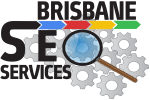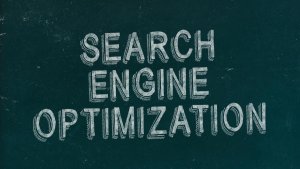And why it matters in SEO
Search intention or user intent, query intent or keyword intent refers to the meaning, the reason or what the user doing the search actually is looking for.
A user enters a keyword into a search query form to answer a question that they have. That question maybe who in the local area sells washing machines or it maybe who the cast is on the tv show they just watched. Their intention when using a query, keyword or question in a search engine is to get an answer to their query.
There are three different kinds of intent when it comes to search.
- Navigational
- Informational
- Transactional
I would also include Research as an intent as well. All four of these intent types are users trying to answer or satisfy a need or question they have online.
Navigational Intent
Navigational intent is simple searching for a specific website and are just looking for the URL to get there with. It is a pre-determined location that the user has in mind. It is somewhere they know they want and are only looking for it.
Informational Intent
Informational searches are people looking to quickly answer a question or understand more about a certain topic. Typically keywords entered here are “How to” “guide” “alternatives” or “what are”
Transactional Intent
Transactional search terms are generally “buy” “purchase” or deal and people using this kind of search intent are generally looking at making some sort of purchase or completing a similar task.
Research Intent
Research intent searches are people looking for information on a product or service and will purchase in the near future. They are using the searches to compare prices, terms and gather more information about businesses and their products before finalising a transaction. Also known as a Commercial Intent.
The Importance of User Intent
Understanding what the user is searching for helps guide what keywords you optimise your pages for. If the user is obviously in the Commercial/Research intent phase having those keywords present them with a straight product page wanting them to buy now will put them off. They simply aren’t ready to by at that point. It would better to present and informational page instead.
For instance if a user was typing “product name specifications” into the search engine they would be looking for information and not ready to purchase. Where as a “Buy product name” signals an intention to purchase that product and therefore having a search result that leads to a product page would be more useful.
Optimising Content for Intent
Optimising for search intent is creating or fine tuning your content to that addresses your potential customers needs. You best serve your needs by serving the needs of the user. That is provide them with the most relevant content for the keyword search that they conducted.
If that need, the intent behind the search is Informational then your provide information about the question, product or service they are looking at but also have a clear way for them to reach the purchase page. If that need is Transactional then you provide a result that leads directly to the product and the information they need to purchase it.
Conclusion
By writing for and understanding your customers and their intent when searching it can help you in converting the people who see your organic search results into customers. By matching the keywords and your content to the users search intent you can greatly increase the likelihood of a conversion from visitor to customer.
Have a question ? Contact us to get some answers!
Further Reading
https://en.wikipedia.org/wiki/User_intent
https://yoast.com/search-intent/
https://wearesocial.com/au/blog/2019/02/digital-report-australia


